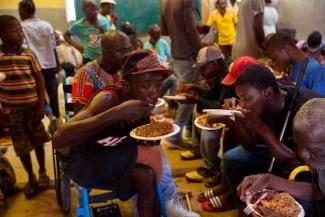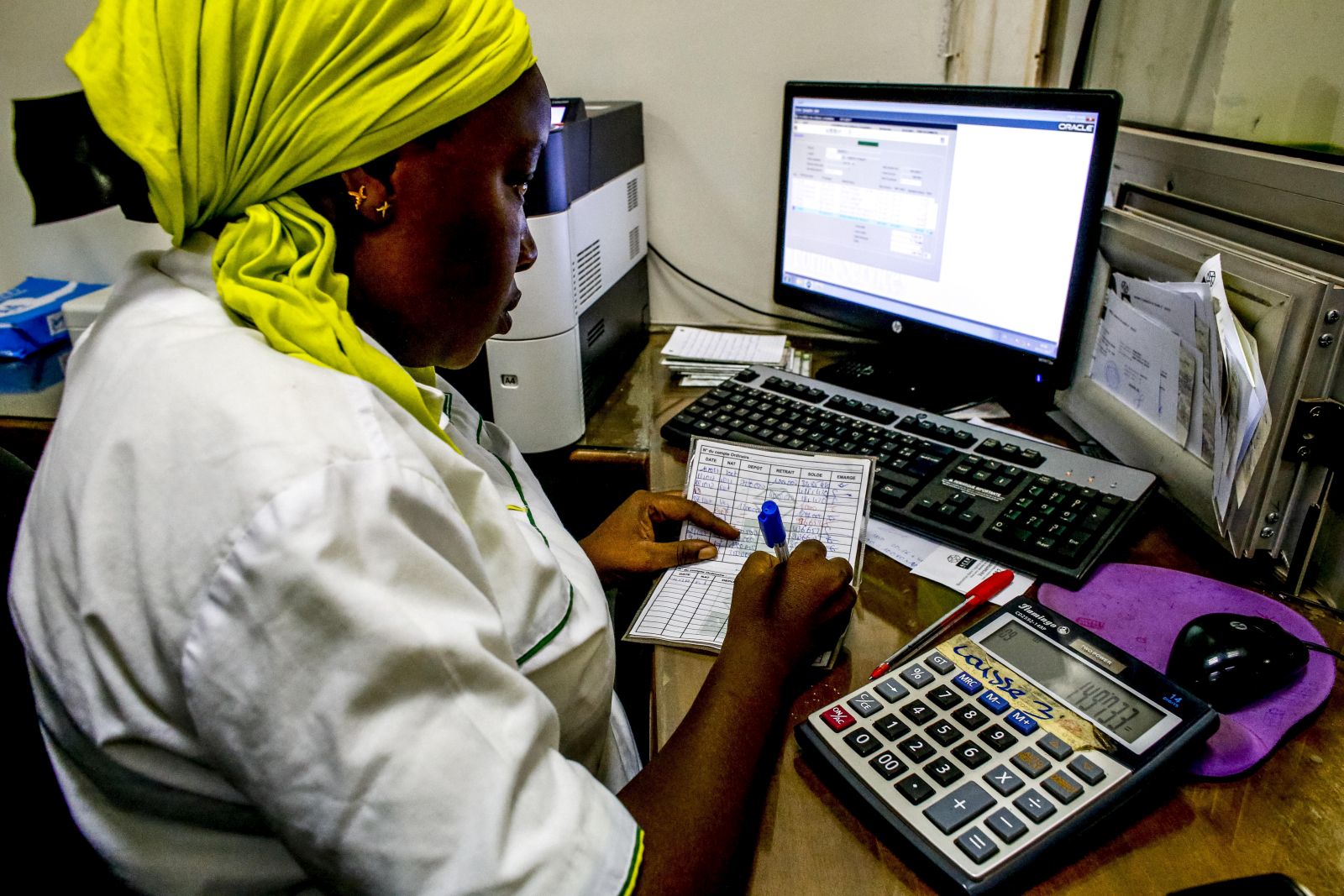Discrimination
Development cooperation must become more inclusive

Over 1 billion people worldwide have a disability. According to the UN, about 80 % of them live in low-income countries. For a long time, sociologists have been discussing a vicious cycle of poverty and disability. The poor tend to have inadequate access to health care, so they are more likely to suffer from health problems and permanent impairments. Indeed, poverty often causes disability. At the same time, people with disabilities are at greater risk of poverty because they have fewer opportunities to earn money.
People with disabilities are disadvantaged in social terms (see my article on www.dandc.eu). This was confirmed in a study done by the Christian Blind Mission (CBM), an organisation based in Bensheim, Germany, promoting inclusive development. Our programmatic approach is called community-based inclusive development (CBID). Last year, the CBM’s CBID Baseline Study showed that only around 20 % of the 471 surveyed persons could fully participate in their communities’ activities. The CBM collected the data in Ethiopia, Honduras, India, Cameroon, Pakistan, Rwanda, Zimbabwe and Togo in 2020 and 2021. Some of the reasons the respondents suffered exclusion were stigmatisation, poverty, physical barriers and lacking information.
The key challenge is the dearth of job opportunities. Since it is very hard for people with disabilities to earn money, they are more likely to be poor and marginalised. Around the world, employment rates are lower among people with disabilities than those without (Stoevska 2020). There are several reasons. For one, many employers do not want to recruit persons with disabilities because they think they are unable to participate fully in working life. There are physical obstacles too: public transport and workplaces, for example, are often inaccessible.
In many cases, moreover, people with disabilities lack basic education and skills, as discrimination prevented them from going to school. In 2018, according to UNESCO, 263 million children and young adults around the world did not attend school at all, and children with disabilities in developing countries were particularly affected. Schools typically have steps and staircases, but lack books in Braille and suitably trained teachers.
Disadvantaged in crisis situations
People with disabilities also experience discrimination in development projects and humanitarian aid. All too often, projects – mostly unaware of the issues – do not take into account their particular needs. When natural disasters occur or conflicts erupt, people with disabilities sometimes do not get any help at all. In other cases, they find themselves last in line. A deaf woman has virtually no chance to flee from an impending tsunami if only sirens signal danger. A blind man will not be able to find his emergency shelter if only visual signposts lead the way there. Development agencies must ask themselves whether they are doing enough for disabled people – and how they could do more.
There are many good reasons to enhance inclusion (see box). For one thing, inclusion is enshrined in international law (see box). Furthermore, excluding people with disabilities has a negative impact on the entire economy, as a study conducted by Robert L. Metts on behalf of the World Bank revealed as early as 2000. When the potential of so many people remains untapped, they are not contributing to GDP, and governments are deprived of tax revenues.
Another negative feedback loop is that children with disabilities who do not attend school do not participate in school-related health and food programmes. Accordingly, they are more prone to disease, adding to health-care burdens. At the same time, their future ability to earn money is compromised. A 2016 CMB publication highlights further examples of the damage exclusion causes (Banks and Keogh).
Inclusive development projects
It is absolutely obvious: we cannot afford exclusion. Nonetheless, only a fraction of Germany’s government-funded international development projects are inclusive. So how can inclusion be achieved in crisis regions worldwide?
A motto of the disability-rights movement is, “nothing about us without us”. The implication is that people with disabilities must be involved right from the moment a relevant idea is conceived. If that happens, new schools, health-care services, or cultural programmes can generally be made inclusive without costs rising significantly or even at all.
We need a paradigm shift in development affaires. To reach as many people as possible with limited resources, people with disabilities must be considered explicitly. Support must be tailored to the needs of all disadvantaged groups. Otherwise, they will fall even further behind.
A twin-track approach is necessary. All development programmes must pay attention to disabled people, and special steps must be taken to ensure this target group enjoys equal opportunities.
Inclusion is a cross-cutting issue which does not only concern government agencies. Civil-society organisations must play their role too. Once every development agency takes account of inclusion in all efforts, we will achieve a lot for the world’s 1 billion people who are living with disabilities.
References/Links
CBM, University of Cape Town, 2021: Baseline study: CBM Community Based Inclusive Development (CBID) Initiative.
https://www.cbm.org/our-work/what-we-do/initiatives/community-based-inclusive-development.html
Stoevska, V., (ILO), 2020: International day of persons with disabilities: How disability affects labour market outcomes.
https://www.cbm.org/our-work/what-we-do/initiatives/community-based-inclusive-development.html
Rainer Brockhaus is CEO of CBM Christoffel-Blindenmission / Christian Blind Mission.
rainer.brockhaus@cbm.org














